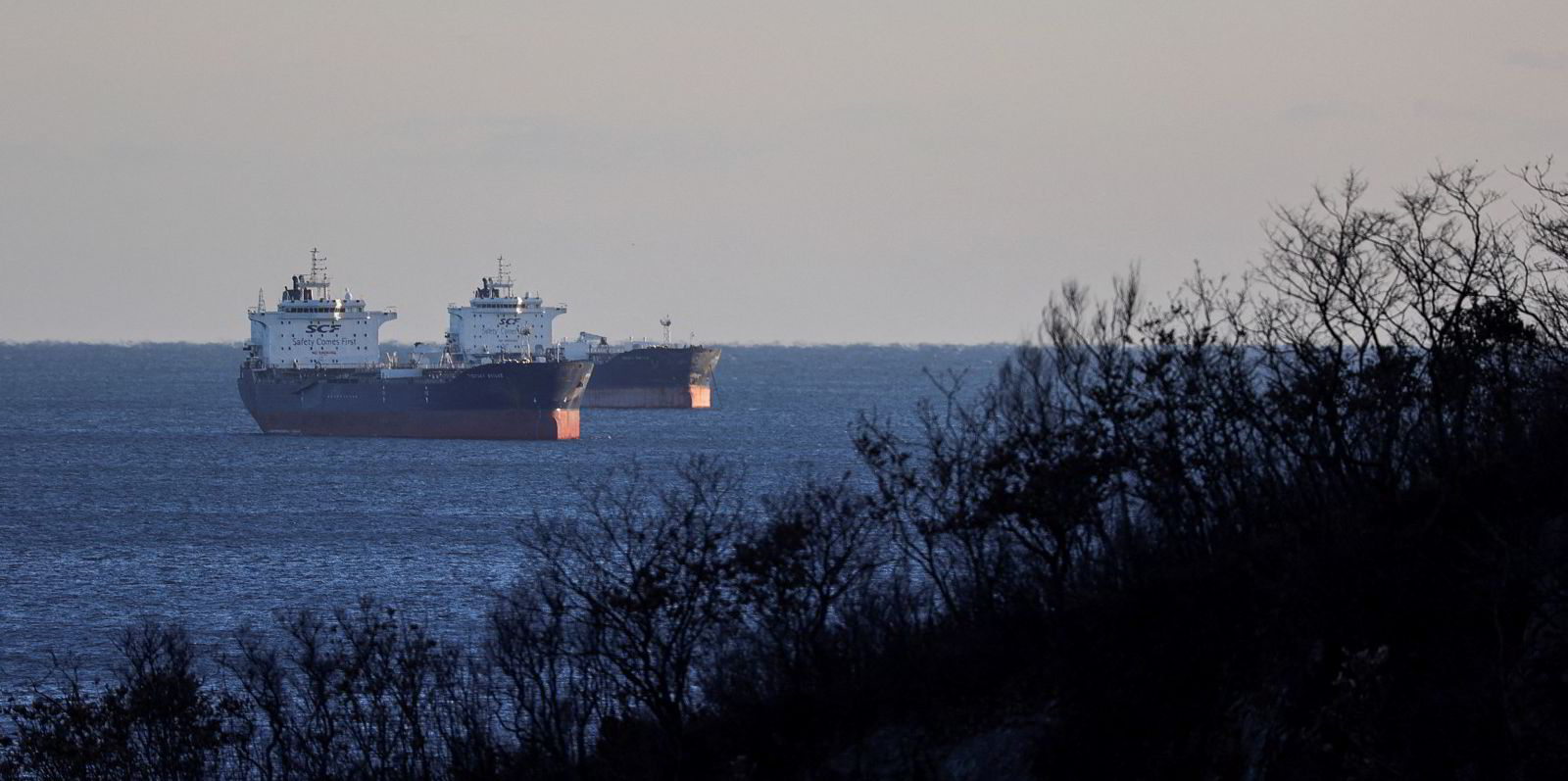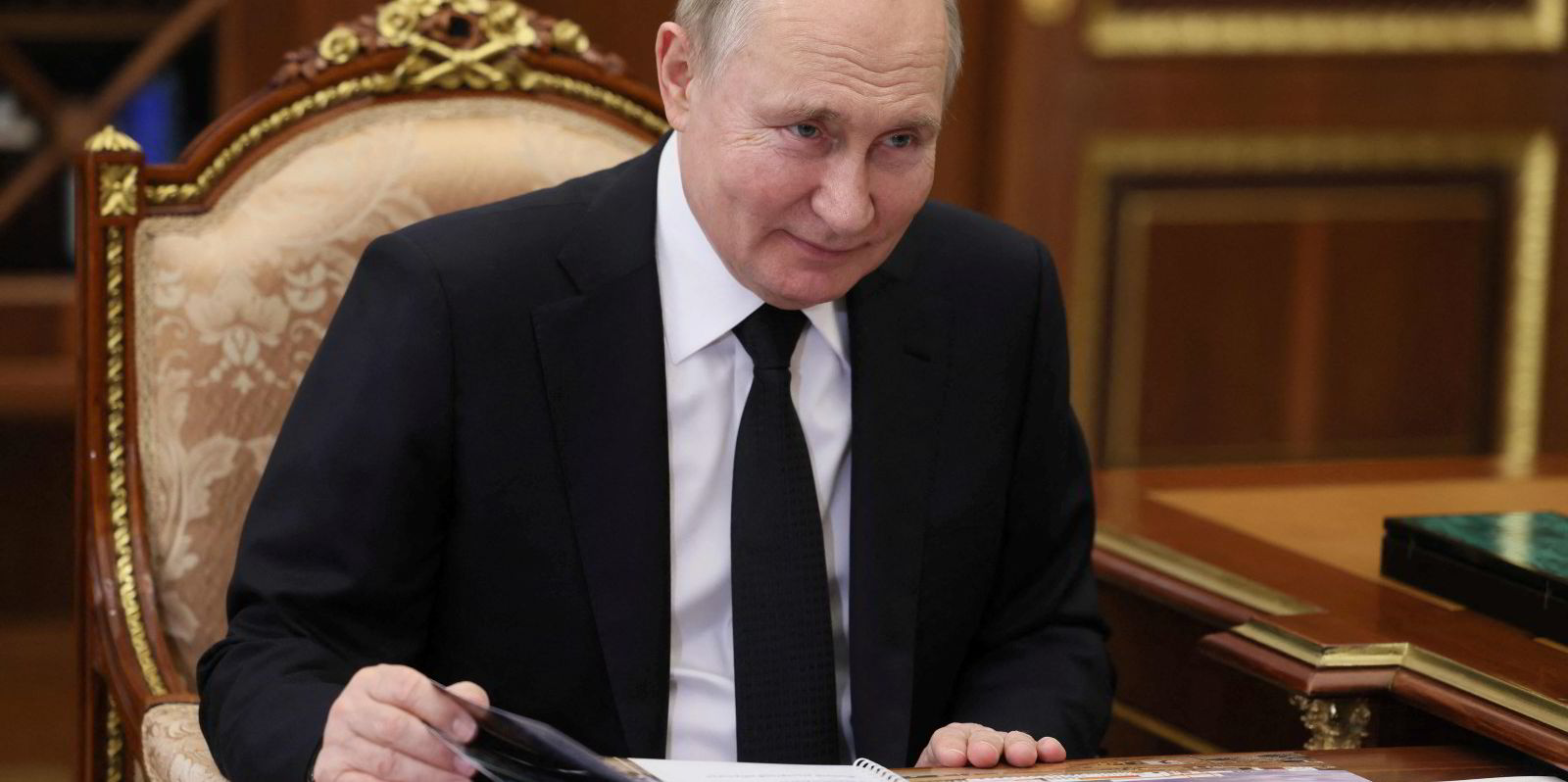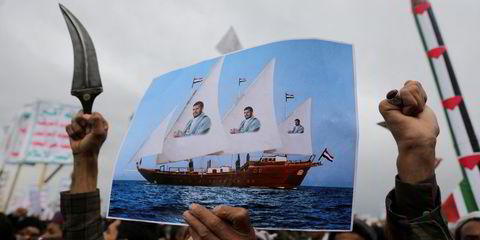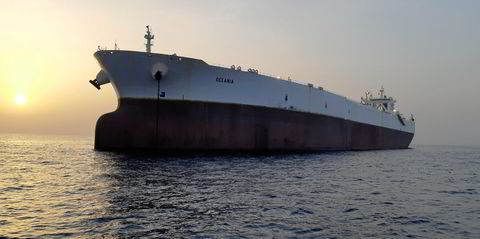Oil tanker traffic leaving Russian ports was down by half in the first two days after the European Union ban on seaborne imports, according to a vessel tracking service.
About 1.94m barrels per day (bpd) were shipped from Russia from 5 December with some believed to be heavily discounted cargoes bound for India, according to TankerTrackers.com.
The site recorded 3.5m bpd being carried by sea in the month before 5 December, when the EU seaborne import ban and a price cap scheme championed by G7 countries was introduced.
The ban means that the EU has to find 1.1m bpd of crude from elsewhere, according to the International Energy Agency’s most recent monthly oil report. Russia had also failed to find major buyers outside of India, Turkey and China, it said.
European shipowners, insurers and financiers are barred from shipping Russian crude to countries outside of the EU and G7 countries unless it is below a price cap of $60 per barrel. But shipping companies were left with little time to put plans in place with the level only set at the weekend along with the publication of detailed EU guidance.
“With only a few days into the price cap regime, it’s too early to determine what’s happening with Russian crude volumes,” said analysts at Clarksons in a note.
Analysts have predicted a shortage of tankers to move Russian crude because of the restrictions on European shipping. Data compiled by the Centre for Research on Energy and Clean Air found that Greek-owned vessels carried more than 40% of Russian crude in October.
Uncertainty over insurance has also resulted in a backlog of more than 20 loaded oil tankers off Turkey because of demands by Ankara for documented proof of coverage.
Talks were continuing on Wednesday between Western protection and indemnity clubs and Turkey to try to resolve the dispute, according to Marcus Baker, the global head of marine and cargo at insurance broker Marsh.
“On the face of it, it seems really quite straightforward,” Baker told the BBC. “What the Turkish authorities are after is confirmation of cover, including in the event of breach of sanctions.
“Clearly, that’s something that the Western insurers cannot provide.”
Turkey fears that a sanctioned cargo in breach of club rules might allow P&I providers to refuse cover in case of accidents.

He said that an accommodation was needed between the insurers and the Turkish government to work out what paperwork could be provided. “Those conversations are going on actively at the moment,” he said.
The tanker sector is closely watching the impact of the ban and price cap, with most analysts predicting a boost in tonne-miles because longer voyages will be required to take crude to buyers.
But with the cap pitched at $60 — a level criticised by Ukraine for being too high — some have said it will have a limited impact.
Its architects hope to keep the cap at 5% below market rates to limit gains from fossil fuel sales to fund its invasion of Ukraine.
“Several more tankers are announcing India as their destination as expected,” said TankerTrackers.com in a note to customers. “It means those barrels were likely heavily discounted at the last minute.”





